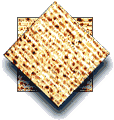It's Pesach but not Passover!

So Pesach is not Passover - there was a translation error!
This is what we learned in Torah Study today!
That holiday we have celebrated as Passover forever is actually not "pass over". That was the result of a mistranslation from a Latin translation and on to English during the Roman period.
So there are many other translations that are interesting.
"Pesach" is better translated as "protection" (and yes, God protected the families who put the blood of the paschal lamb on their doors)
Pesach is a holiday beginning on the 14th of Nisan and traditionally continuing for seven or eight days, commemorating the Exodus of the Hebrews from Egypt. And it will still be referred to as Passover... but interesting to know that technically that story about the translation meaning "pass over" is not entirely accurate.
It is also correctly called:"Chag HaMatzot" - Holiday of Matzot. It is called this in the Torah since we are commanded to eat matzah and are prohibited to eat bread ("Chametz") only matzah or even to have it in our home.
We are also commanded in the Torah to tell our children the story of the Exodus. An interesting analysis:
"Pesach" can be made into two words; Peh (mouth) Sach (to speak). This reminds us that although the mitzvah of remembering the Exodus applies "each day of your life" (Deut. 16:3), yet on Pesach, it is not enough to only remember, but we must tell the story of the exodus and "speak" about it at length.
The Pesach celebration was commanded in the Torah. First in Exodus and again in Numbers and again in Deuteronomy. The evolution of the holiday goes from one celebrated in the individual homes, to a celebration in Jerusalem at the Temple and then after the destruction of the Temple it evolved back to a home celebration again. With the Mishna (about 200 CE) the seder was developed into a celebration that more closely resembles how the holiday is celebrated even today.


0 Comments:
Post a Comment
<< Home